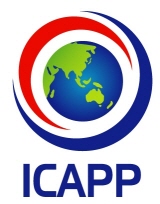Asian political parties end conference in Azerbaijan
 BAKU, Azerbaijan—Conflicts and poverty continue to stalk Asia – the largest and most populous continent – but Asian political parties remain hopeful about the future, with the Philippines and Burma (Myanmar) providing some of the bright spots.
BAKU, Azerbaijan—Conflicts and poverty continue to stalk Asia – the largest and most populous continent – but Asian political parties remain hopeful about the future, with the Philippines and Burma (Myanmar) providing some of the bright spots.
At the close of the 7th General Assembly of the International Conference of Asian Political Parties (Icapp) in this picturesque city by the Caspian Sea, some 60 political parties from 52 Asian nations acknowledged the slow grind of peace and reconciliation in parts of the region.
They pledged to work for peace and development under the principle of “interfaith harmony and political pluralism,” said the Baku Declaration adopted by the plenary on Friday.
The assembly resolved to institutionalize the Asian Peace and Reconciliation Council (APRC) pushed by former Philippine House of Representatives Speaker Jose de Venecia Jr., Icapp founder and co-chair of its standing committee.
The APRC was created in Bangkok last year to assist and advise governments in resolving conflicts in the region.
Icapp also pledged to establish an Asian anti-poverty and micro-financing fund.
The Baku Declaration, read by Pakistani Sen. Mushahid Hussain Sayed, sought to enlarge “the objective area of the proposed fund into a Global Antipoverty Fund following consultations with our intraregional political partners in Latin America and the Caribbean … and with political parties in Africa.”
The declaration noted the “positive signals emanating from one of the most turbulent regions in Asia which has seen recurring violence.”
Icapp welcomed the 18th Congress of the Communist Party of China last week, which led to “the political transition to a fifth generation leadership that reflects success in building a peaceful, prosperous and stable society.”
Turning to the Philippines, Icapp applauded the signing on Oct. 15 of a framework agreement that should end the Moro rebellion in Mindanao. It recognized Burma’s political reforms as well.
“Peace and reconciliation as laudable goals of successful state policy are evident in the historic signing of the framework peace accord in the Philippines, thanks to the leadership of President Benigno Aquino III, leading to a final settlement of a decades-long conflict between the central authority in Manila and the Muslim fighters in the south,” it said.
“And this spirit is reflected also in the historic change in Myanmar (Burma) with an opening up to the outside world,” it added.
The assembly also supported the position of the Philippines and Vietnam to resolve territorial disputes in the South China Sea, a part of which Manila has renamed West Philippine Sea, “based on the accepted principles of international law and the UN Charter, rather than resorting to the threat or use of force. Political differences in such territorial disputes must not become impediments to normal economic and cultural interaction, based on mutual benefit.”
From its founding in Manila 12 years ago, Icapp now counts as members 318 parties, both ruling and in the opposition, in 52 Asian countries.
“Icapp today embodies the Asian spirit of resilience evident in the dynamism and can-do vibrance of our societies, surmounting crises and overcoming economic difficulties with creativity and innovation,” read the four-page declaration.
In a speech, De Venecia said Icapp “represents every shade in the political spectrum. We do not distinguish our member-parties by their ideologies. We ensure only that they belong to the mainstream – that they aggregate a significant portion of political opinion in the states they represent.”
“Up to now, our main effort is directed toward bringing the Asian political parties … into a collegial whole. We share a vision of ‘One Asia,’ but we also realize, we can only approximate that ideal,” he said, pointing to Icapp’s main purpose – “creating space for dialogue” among contending parties in Asia.
Lingering conflicts, however, remain a big challenge to the region.
One of these is the Cambodia-Thailand border row over ownership of the 11th-century Hindu Preah Vihear Temple, which has led to periodic clashes.
Others are the sporadic clashes between rival “Yellow Shirt” and “Red Shirt” protesters in Thailand; the Israel-Palestine conflict in the Gaza Strip; the instability on the Korean peninsula; the threat of force to curtail Iran’s nuclear ambition; the Syrian crisis; the territorial disputes in the South China Sea involving China, Taiwan and four members of the Association of Southeast Asian Nations, including the Philippines; the conflict between Thailand and Burma over the latter’s Rohingya Muslims; the border row between Azerbaijan and Armenia over the Nagorno-Karabakh area; and China’s row with Japan over disputed islands that Tokyo calls Senkaku and Beijing calls Diaoyu.
In an unprecedented move, the assembly called for snap elections under United Nations supervision to end the killings in Syria. The 20-month uprising against the Assad regime has claimed the lives of some 40,000 Syrians.
It called on both President Bashar al-Assad and the Syrian national opposition to “work out an accord for national reconciliation that includes free and fair elections which can result in a government that has legitimacy through the ballot box.”
“Otherwise, the conflict has a danger of spilling into the wider Middle East with disastrous consequences leading to sectarian and ethnic cleavages,” the declaration said.














